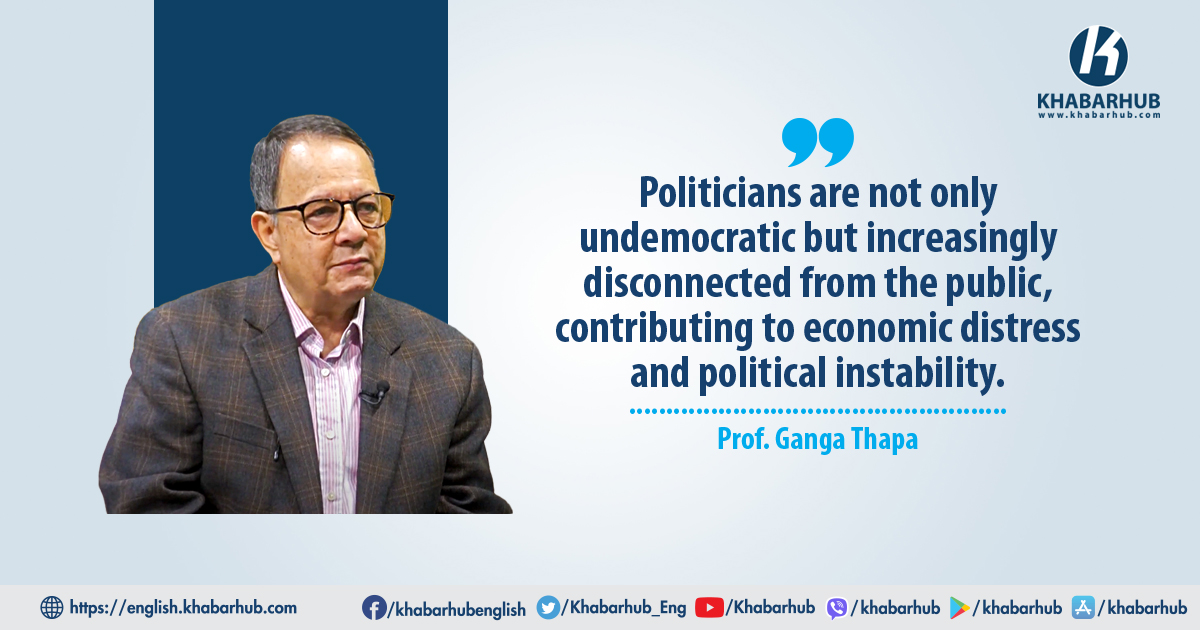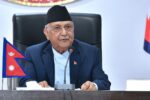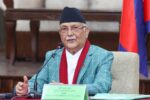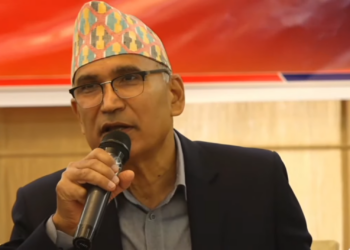Nepal, a nation plagued by corruption, human trafficking, and entrenched elitism, desperately needs radical change.
Can we envision a Nepal where leaders prioritize national interests over personal gain, and the rule of law truly prevails? A Nepal led by selfless ministers, driving meaningful change, supported by an independent judiciary?
The post-Panchayat period, beginning in 1991, has witnessed a justice system catering to two classes: the privileged and the rest.
Special interests consistently supersede those of the common people, fostering a culture of inconsistency, opportunism, and demagoguery. This has led to widespread disillusionment among Nepalese citizens.
Four decades later, Nepal’s democratic institutions remain a work in progress. The nation’s future depends on leaders who prioritize national interests, uphold the rule of law, and ensure accountability.
Politicians are not only undemocratic but increasingly disconnected from the public, contributing to economic distress and political instability.
The government’s approach must focus on defending and promoting national interests. Since the establishment of the multiparty system in 1990, most governments have been corrupt.
The adoption of Western democracy has yielded unintended consequences. Economic dislocation, social disruption, and glaring inequality have become endemic.
Wealth concentration has increased, leaving most Nepalese stagnant, forcing many to seek opportunities abroad.
This echoes Mark Twain’s ‘The Gilded Age: A Tale of Today’ (1873), characterized by rampant corruption and cronyism.
This troubling trend feels like a modern version of the Rana Rule (1846–1951), though on a smaller scale.
Many Nepalese are now questioning whether the current political system is truly serving the country.
Policy failures have played a significant role in this decline. For instance, high-profile political figures such as Arzu Deuba, implicated in the Bhutanese refugee trafficking scandal, currently serves as the foreign minister from Nepali Congress (NC) quota.
Additionally, politicians like Rabi Lamichhane and Dhanraj Gurung (NC), both accused of cooperative fund embezzlement, were recently rewarded with ministerial positions.
This suggests that the Western model of democracy in Nepal has become a golden age for politicians and business elites rather than benefiting the broader population.
The collapse of cooperatives due to politicians’ massive embezzlement of funds raises concerns about the potential failure of private banks, many of which are owned by active political party members. For example, Binod Chaudhary, who owns Nabil Bank, the largest private bank in Nepal, has already moved public savings to other countries. Similar stories exist for other banks.
In Nepal, corruption is perpetuated through a tacit understanding between legislative members, politically protected high-level bureaucracy, and party-appointed judges, who are the primary beneficiaries of Nepal’s democracy and financial institutions.
Leaders abuse power, and accountability remains elusive. The rule of law fails to ensure that no one is above justice. The triumvirate of Oli, Deuba, and Dahal (ODD) has exemplified this impunity, prioritizing personal interests over national welfare.
The rise of populist leaders like ODD has led to widespread disillusionment.
Their behavior reflects what Barack Obama (2008) once criticized: ‘You can put lipstick on a pig, but it’s still a pig.’ Many Nepalese still have confidence in their political system, but public sentiment against ODD and others like them is growing.
Addressing corruption and public land encroachment is crucial. Despite this, the current political reality suggests the need for sound ideas—a crucial remedy for the broader working population.
Breaking this destructive cycle requires radical change. An empowered judiciary and leaders committed to public service are essential.
Nepal deserves better. Its citizens deserve a government prioritizing their needs, not the interests of a privileged few. Marxism has inspired entire generations, but its influence has led to intolerance, denunciation, and violence.
Institutional reform is necessary. The presumption is that democratic politics become a fair game with a noble purpose.
However, the most significant case of democratic erosion suggests that the future of Nepali democracy is controlled by a few puppeteers.
Nepalese people find themselves in a situation where they cannot participate in the political process.
Whatever kind of Nepal emerges under the republic is at risk of losing its very existence due to the vile and crude politics of a handful of politicians, such as ODD.
There is a reason for optimism compared to many previous generations. However, to seize the opportunities, Nepal needs to ensure that its politics are on the right track.
This has hindered Nepal’s capacity to advance basic goals and develop a more confident sense of national identity.
The government’s approach must focus on defending and promoting national interests. Since the establishment of the multiparty system in 1990, most governments have been corrupt.
Nepali democracy today is exceptionally troubled, which is a great irony. Technological developments and globalism are opening doors for freedom and creativity.
Nepal can make effective progress economically. However, political power is required to contend with financial power.
Without political liberty, there will be no future, and people’s needs cannot be satisfied.
The political consequences are now clear, and it is essential to establish a robust, predictable relationship between the government and the people.
This vision is not a pipe dream—it is a necessary step toward a just and equitable society. For too long, Nepal’s leaders have operated with impunity, prioritizing personal gain over national welfare.
But with an empowered judiciary and leaders truly committed to public service, Nepal can break this destructive cycle.
Nepal deserves better. Its citizens deserve a government that prioritizes their needs.
There is a reason for optimism compared to many previous generations. However, to seize the opportunities, Nepal needs to ensure that its politics are on the right track.
This requires abolishing frivolous politicians like ODD and other ineffective, corrupt, and monotonous figures without much delay. The time for change is now.
(Views expressed in this opinion are the writer’s and do not necessarily reflect the editorial stance of Khabarhub)









Comment